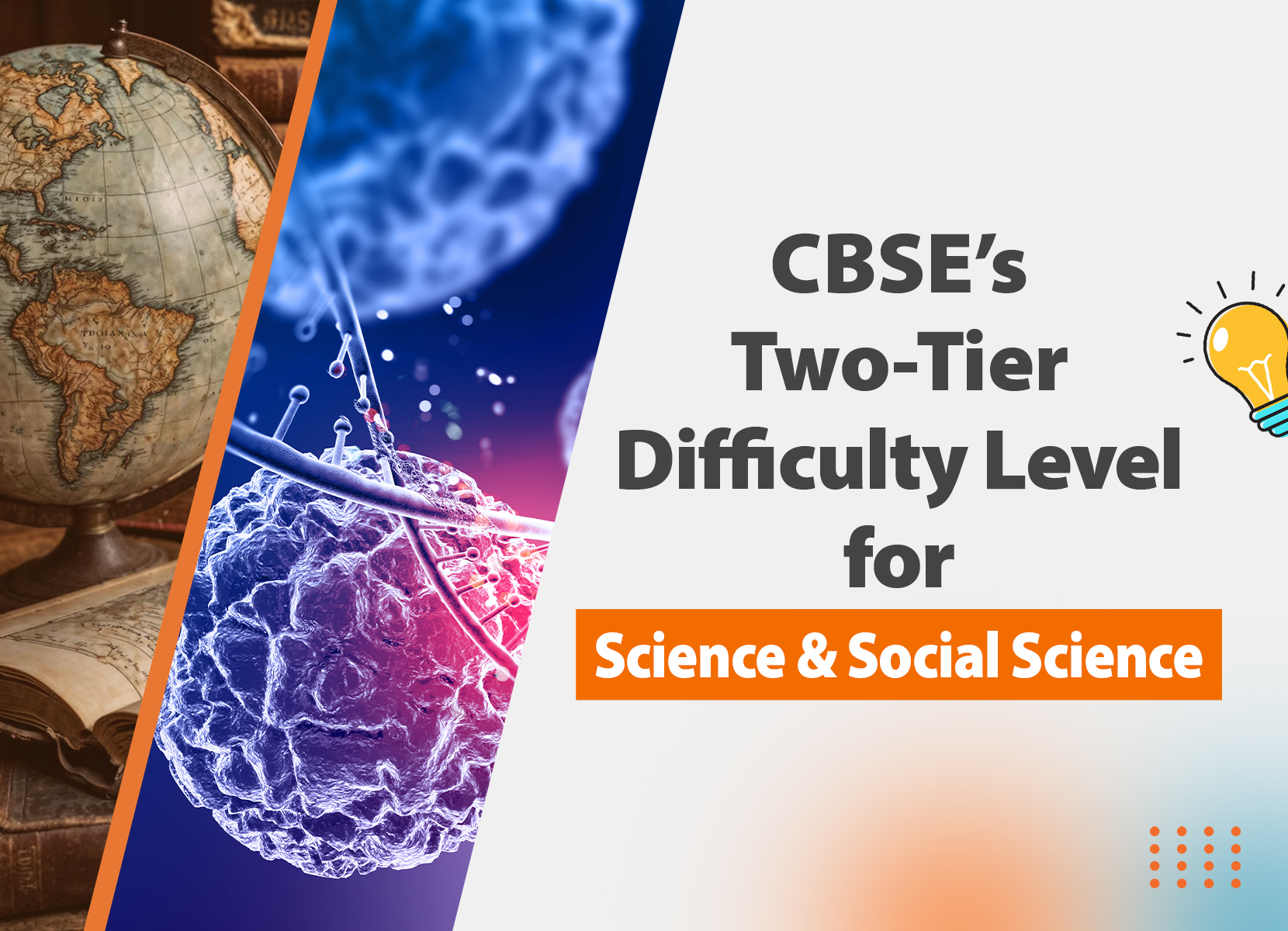CBSE Two Tier Difficulty Level for Science & Social Science
Imagine board exams not being the same for everyone. What if students had the opportunity to decide the difficulty of their board exam? Interestingly, it’s becoming a reality for Central Board of Secondary Education (CBSE) affiliated schools as the board is working towards introducing CBSE two tier difficulty level for Science and Social Science for Class 9 and 10.
Beginning from the 2026-27 academic year for Class 9, students will be given the flexibility to choose from two tier difficulty levels – Standard and Basic – for Social Science and Science. This move by CBSE is one of several major reforms introduced under the National Education Policy (NEP) 2020. This policy pushes for deeper understanding over rote memorisation and the flexibility to choose based on their interests. The exams will also focus on assessing core competencies. Another significant reason for this is to alleviate academic pressure on the students.
What is the Difference between Standard Level Exam vs Basic Level Exam?
According to the new structure for CBSE Science and Social Science Exams, both two tier difficulty levels will follow the same syllabus. Furthermore, the difference will be visible in the board exam paper as the Standard level will have more complex, application-based questions and HOTS. CBSE Social Science Standard level exam will be suitable for those students who wish to pursue Humanities in Class 11 and 12. In contrast, the CBSE Science Standard level exam will be beneficial for students planning to opt for the Science stream in Class 11 and 12.
Basic level board is for those students who prefer a simplified curriculum in these subjects and will not be pursuing advanced studies.
CBSE Chairperson Rahul Singh mentioned that the Board approved the above change during its curriculum meeting. This change will take effect from the 2026–27 academic year.
Why is CBSE introducing this System?
CBSE is not conducting a random experiment; in fact, this comes after a successful implementation of a similar initiative for Mathematics. The CBSE two tier difficulty level for Mathematics was introduced in the academic year 2019-2020. Through such initiatives, CBSE aims to:
- – Reduce the exam stress of the students.
- – Comply with the recommendation of NCF-SE 2023, which calls for differentiated learning according to student learning levels.
- – Enable students to choose the difficulty level based on their learning needs.
-
How will the Two Tier Difficulty Level be Implemented?
To make things easier for students, CBSE will provide ample time within which the students will be able to choose whether they want to opt for basic or standard level. They will also be able to switch the level during the same time-frame. As the process is finalised, schools, students, and parents will be given clear guidelines regarding the same.
Moreover, to further eliminate the ‘high stakes’ aspect of the Board exams, all students will be allowed to take Board exams on up to two occasions during any given school year, one main examination and one for improvement, if desired. This will be implemented for Class 10 from 2027-28 board exams.
Timeline for CBSE Two Tier Difficulty Level Exams
- 2026–27: Two-tier format begins for Class 9
- 2027–28: First Class 10 board exams under the new format
- NCERT is currently preparing the new Science and Social Science textbooks
How will this affect the students?
With the choice of picking between Basic and Standard levels, students will have greater flexibility to study according to their own learning needs. For instance, students struggling with a particular subject can choose the basic level and perform better with less academic pressure. They will focus more on core concepts. On the other hand, students who wish to pursue careers in either field and build a strong foundation for the future can choose the standard level.
Frequently Asked Questions (FAQs)
- Q1. When can students choose Basic vs Standard for Science?
- Ans. Students can choose the option in class 9 from the academic session 2026-27.
- Q2. What happens if a student fails the Standard level exam?
- Ans. If a student fails the exam, they will be able to sit for an improvement exam.
- Q3. Can students opt for an improvement exam?
- Ans. Yes, all students can improve their marks, irrespective of the marks received in the first attempt.

